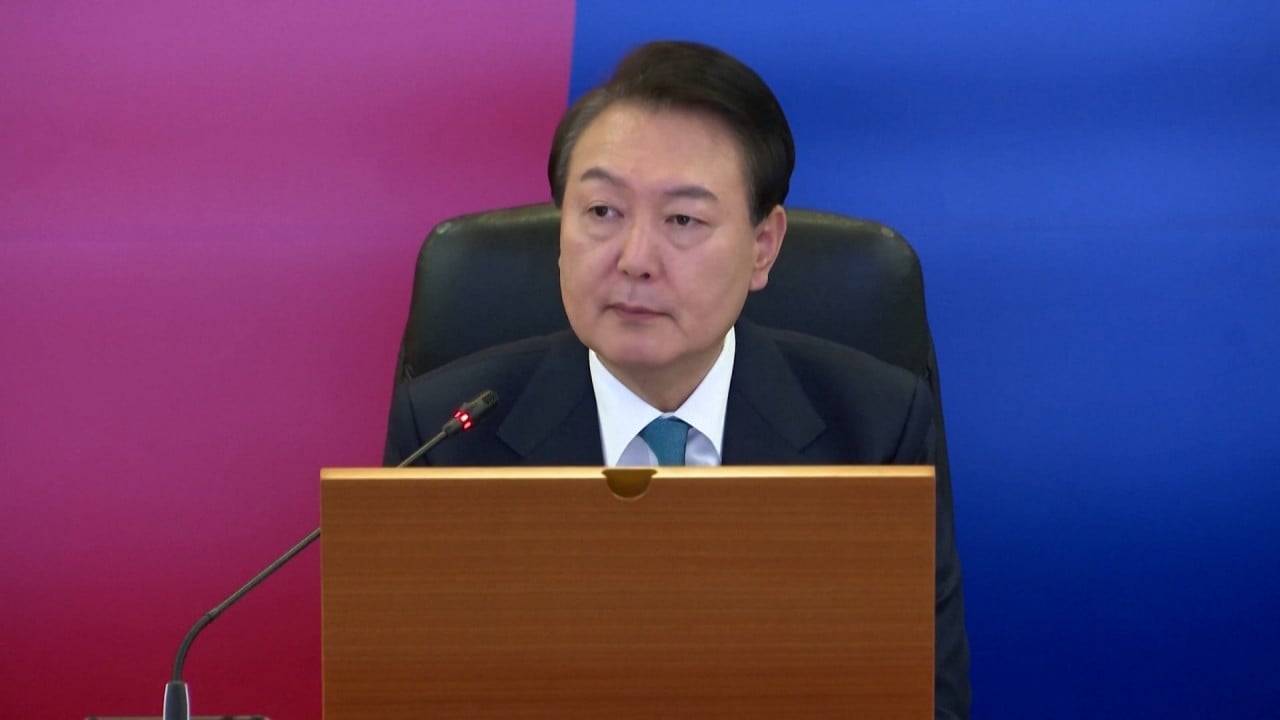
Why South Korea should not go down the nuclear weapons route
- The South Korean president has raised the possibility of the country acquiring nuclear weapons if the security situation on the peninsula continues to deteriorate
- However, this would lose Seoul the moral high ground, leaving only military options on the table, and rapidly change the regional security dynamic
South Korean President Yoon Suk-yeol last week publicly floated the possibility of the country acquiring nuclear weapons if the security situation on the Korean peninsula continues to worsen. “If the problem becomes more serious, South Korea could have tactical nuclear weapons deployed or secure its own nuclear weapons,” he said, adding that “if things turn out this way, we will be able to acquire [nuclear weapons] quickly thanks to our science and technological capabilities”.
He also ordered the Defence Ministry to significantly enhance its retaliatory strike capabilities so that Seoul could launch counter-attacks against North Korea that are 100 times more destructive than an incoming threat or 1,000 times more powerful in the case of an invasion.
Yoon’s recent comments were made against the backdrop of this major escalation. Although condemnation of North Korea’s actions is warranted, South Korea should refrain from going down a dangerous path of possibly no return.
The situation on the Korean peninsula would only deteriorate if Seoul decides to pursue its own nuclear arsenal.
All the promises made in the past and the inter-Korean agreements signed would become null and void. Instead of promoting peace, this approach would put South Korea at the same level as the North, making it another state that disregards international norms and puts world security at risk. Seoul would lose the moral high ground.
Of even more concern is that, as Yoon said, South Korea already possesses the technological capabilities to enable it to acquire nuclear weapons quickly. The security dynamic of the region and the world could change relatively rapidly.
While Japan and South Korea may argue that any such policy changes would be of a defensive nature and aimed at keeping their countries safe, the real-world implications could be very different. The chances for diplomacy with North Korea could disappear, leaving only military options that are not in the best interests of the major players, including Japan, South Korea, North Korea, the United States and China – or the entire world.
‘East Asia could be next Ukraine’, Kishida tells G7
Amid any nuclear proliferation, the chances of a resumption of war would increase. And even conventional warfare on the Korean peninsula would have a devastating effect on both countries and on neighbouring states.
The best way to prevent such a scenario is not through military escalation but by pushing diplomacy. Seoul, Tokyo and Washington must do their best to de-escalate tensions, even if this approach may be harder to swallow for some politicians and military officials.
With consistent engagement, putting diplomacy first, de-escalating military measures and matching words with actions, Moon was able to bring the Korean peninsula back from the brink.
In contrast, Yoon and his advisers seem uninterested in taking a similar path, preferring to believe that a hardline, military-based policy is the way forward, along with a tit-for-tat approach.
Nuclear weapons should never be an option for South Korea. Although difficult and time-consuming, the focus must remain on finding a diplomatic solution to the North Korean nuclear issue.
Gabriela Bernal is a North Korea analyst and PhD scholar at the University of North Korean Studies in Seoul, South Korea



